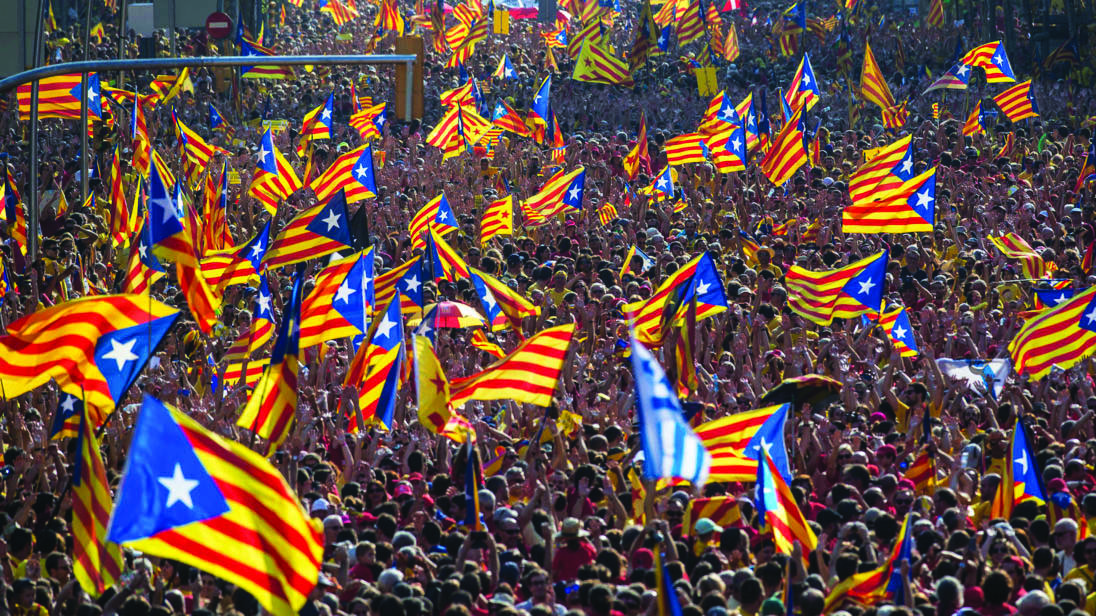Catalonia Declares Independence from Spain.

This past Sunday, Catalonia, one of Spain’s 17 autonomous communities, convened a vote for a referendum to determine whether the region would continue to remain a part of the country.
Before the vote took place on Sunday, Spain’s central government declared the vote, and possible referendum, unconstitutional and demanded that it be put to a stop. This, however, did not deter Catalonians from gathering early Sunday morning to participate in what some consider to be an exercise in democracy.
Located in the northeast corner of the country, and home to Barcelona, Catalonia is one of Spain’s greatest economic assets. According to CNN Money, Catalonia accounts for a fifth of Spain’s annual revenue and leads the autonomous communities in producing 25 percent of all exports.
As such, losing them as a source of tourism and revenue would be a major loss to the larger economy of the country.
Many proponents of secession have cited Catalonia’s economic production in justifying their position, noting that they contribute much more in taxes than they actually receive back from the government.
When voting went ahead on Sunday, national police officers, fully equipped with riot gear, were sent in to disband voters and confiscate ballot boxes. What began as a day of celebration for many quickly devolved into a scene of violence and chaos. Indeed, Catalan officials reported that over 750 people were injured by the national police force during the vote.
Despite the efforts of the central government, the Catalan government released, just after midnight, the results of the vote, with 90 percent of the 2.3 million who voted being in favor of the referendum.
Born in Madrid, Professor of Hispanic Studies and Associate Dean of the Center for International and Intercultural Studies at St. Lawrence, Marina Llorente, told The Hill News she was saddened by Sunday’s events. Llorente voiced her disagreement with Spain’s central government and President Mariano Rajoy as she believes Catalonia has the right to decide whether they want to be a part of Spain.
Most recent reports indicate that Catalonia’s president, Carles Puigdemont, will proclaim the region’s independence from Spain at either the end of this week or the next, following a parliamentary session to assess the results of the vote. Puigdemont even said in an interview with the BBC that any more inference on the part of Spain’s national government would be “an error which changes everything.”
While Spain is a democracy, the country retains some moribund vestiges of their once monarchical system of government, like their king, Felipe VI, who, along with President Rajoy, vehemently expressed his disapproval of the referendum.
In a nation-wide address, King Felipe lambasted separatists and the movement, calling organizers “outside the law.” Likewise, Rajoy, in a news conference on Sunday, defended the actions of police and described Sunday’s events as a demonstration of the resources “the democratic state has… to defend itself against such a serious attack.”
When asked as to how Rajoy would respond to a declaration of independence, Llorente said she was unsure but feared that he would send the national police force to occupy the region and institute martial law. She expressed her dismay and uncertainty regarding the improvement of relations between the Spanish national government and Catalonia and noted that if there had been negotiations between Rajoy and Puigdemont all could have avoided.
By Gabriel Cole.


